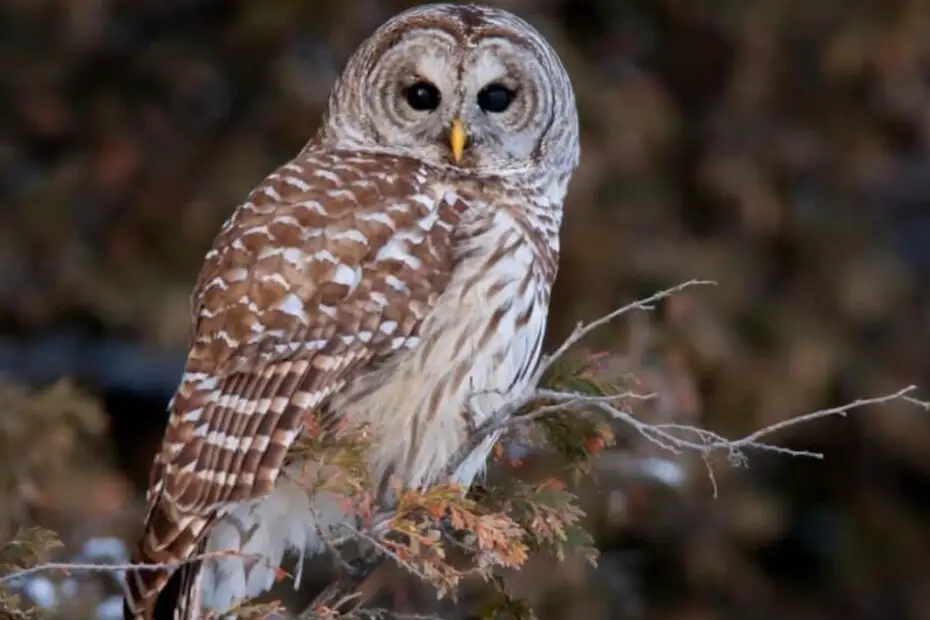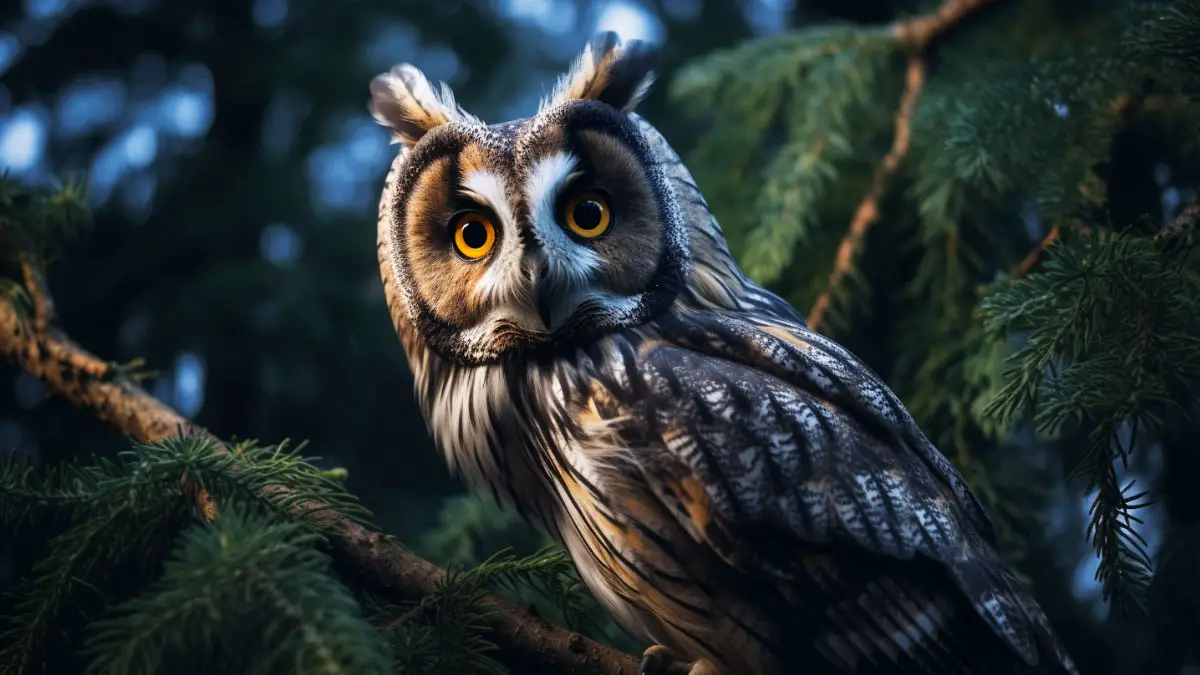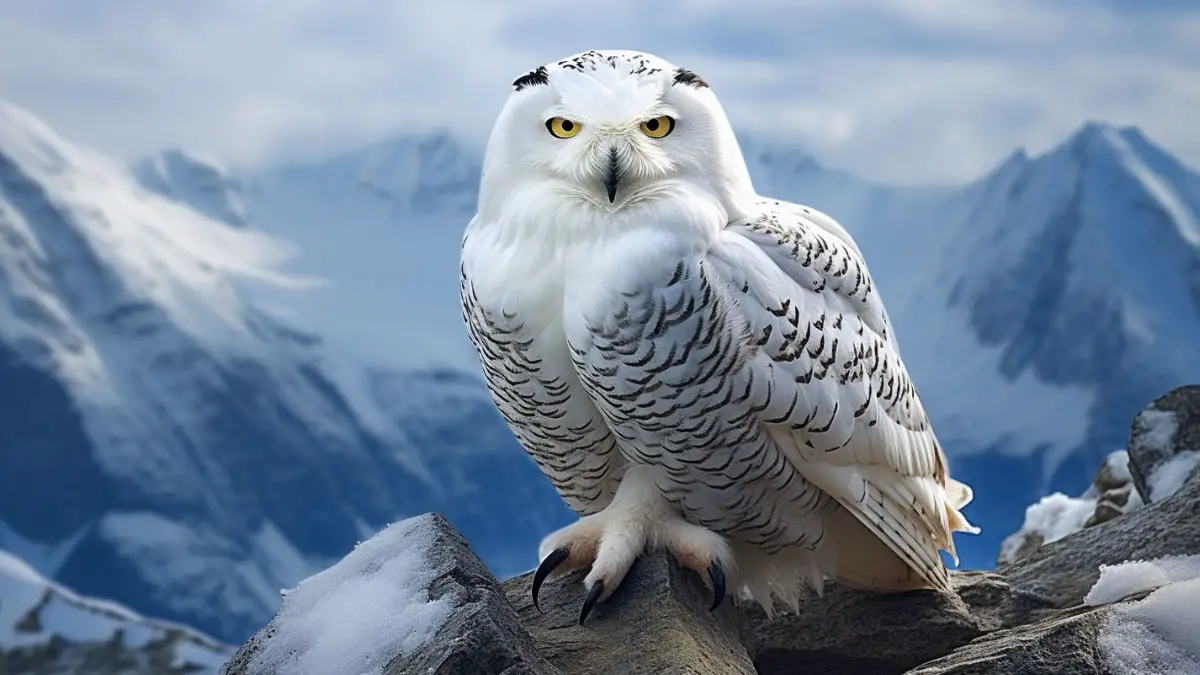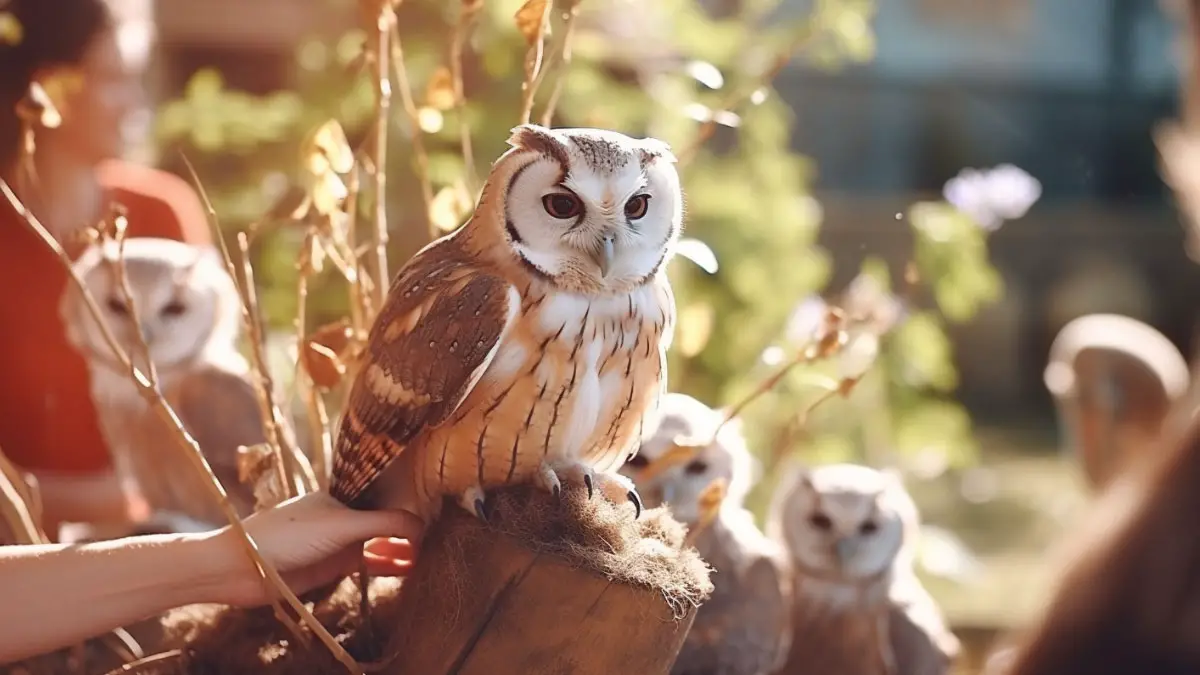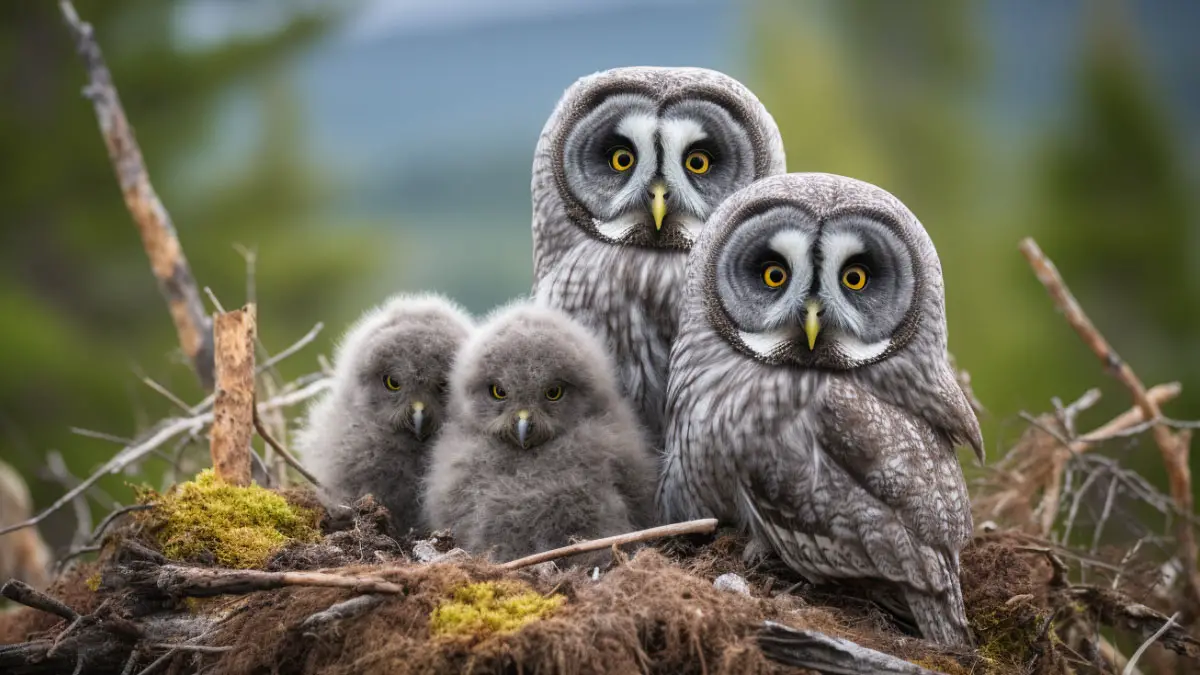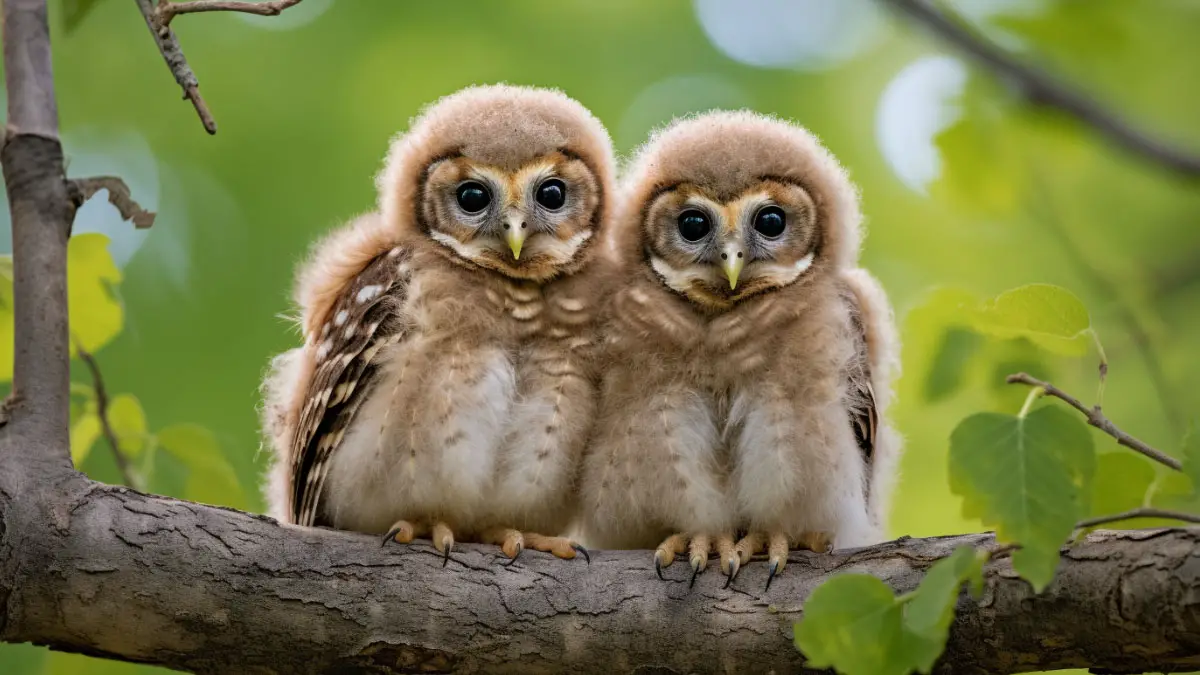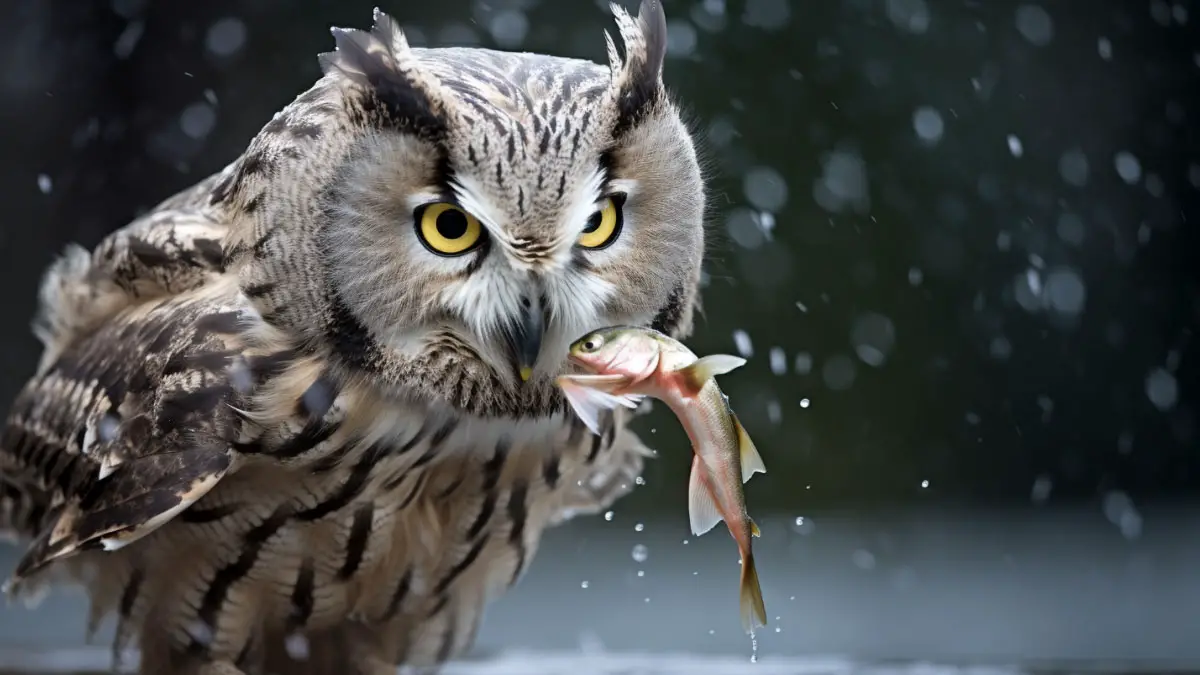With their enigmatic and mysterious nature, owls have captivated the human imagination for centuries. These magnificent creatures of the night possess a remarkable ability to fly silently and hunt with precision.
But do owls eat snakes? Yes, they do, but snakes are not their primary source of sustenance. These opportunistic hunters seize the chance to feast on snakes when they come across them during their nocturnal pursuits.
Read on to unveil the secrets of how owls hunt snakes with precision in the cover of darkness. Furthermore, you will also delve into the diverse owl species that have a particular fondness for these slithery reptiles.
Do Owls Eat Snakes?
Yes, owls do indeed consume snakes as part of their diet, but snakes aren’t their primary diet source. Owls are opportunistic feeders, meaning they seize any opportunity to grab a meal that comes their way.
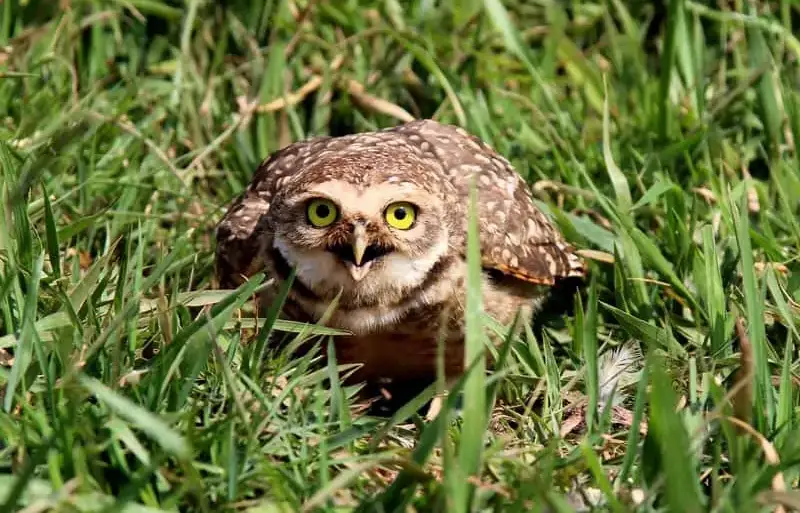
While they might not actively seek out snakes, they are fond of indulging in a snake feast if a snake crosses their path. These nocturnal predators are equipped with specialized features that make them formidable hunters, capable of catching a wide variety of prey.
How Do Owls Hunt Snakes?
An owl carefully positions itself for the perfect strike when it spots a snake. With remarkable accuracy, it employs its sharp talons to seize the snake, ensuring it has a firm grip. Owls are master hunters, and their nocturnal habits make them highly skilled in the art of nighttime predation.
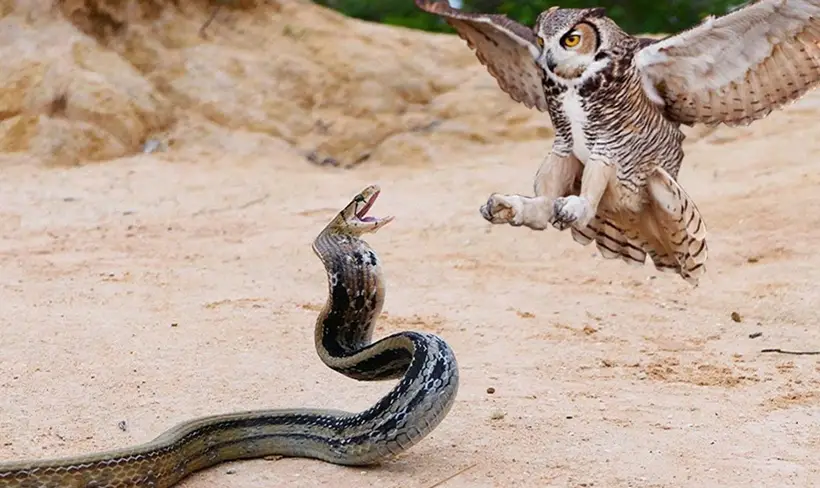
Equipped with binocular vision and exceptional night vision, they can easily spot their prey even in the darkest environments. Furthermore, owls possess wings with silent feathers that allow them to swoop down on their unsuspecting victims noiselessly.
Subsequently, the owl dispatches the snake using its powerful beak. This combination of stealth, precision, and strength makes owls formidable hunters in the dark.
How Do Owls Eat Snakes?
Unlike some predators, owls lack teeth to tear their prey apart. Owls have no problem swallowing them whole when it comes to smaller snakes. However, if the snake is relatively large, the owl employs a different strategy.
It breaks the snake’s body into smaller, more manageable pieces to aid in the swallowing process.
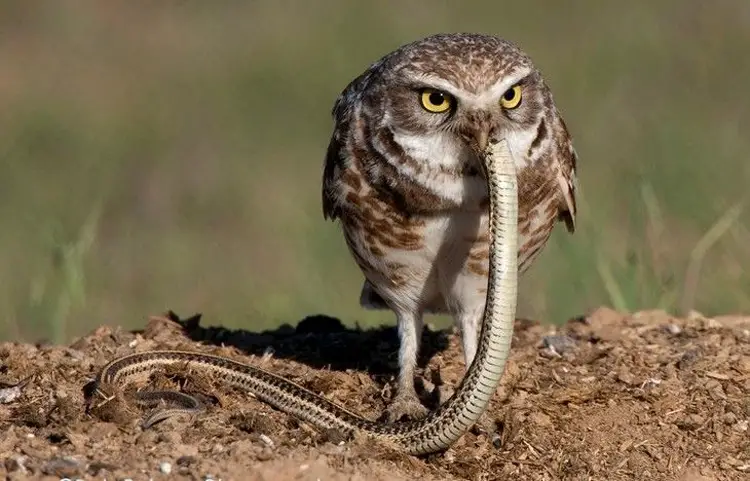
The digestive system of owls is specially adapted to handle the challenges posed by their varied diet. It is powerful enough to break down the snake’s skin, flesh, bones, and any toxins present.
Interestingly, certain indigestible components, such as the tail or fur of prey like mice, are regurgitated as pellets. These pellets provide valuable insights to researchers, as they can analyze them to understand an owl’s diet and feeding patterns.
What Types of Owls Eat Snakes?
While various owl species might occasionally indulge in a snake feast, certain types show a particular fondness for these slithery reptiles. Here are some of the owl species known to frequently consume snakes:
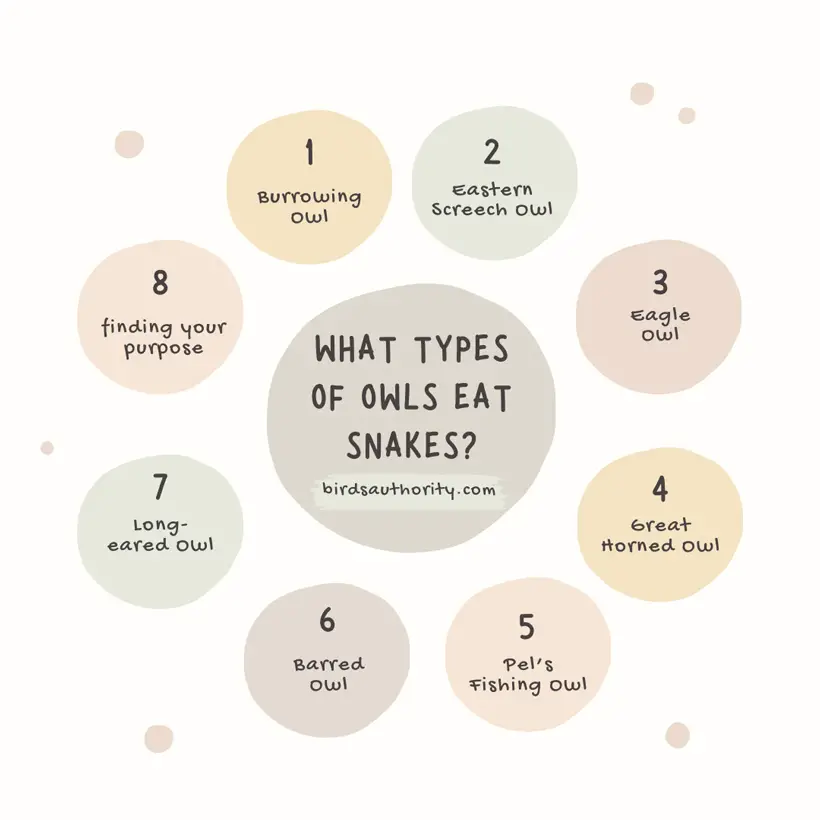
- Burrowing Owl
- Eastern Screech Owl
- Eagle Owl
- Great Horned Owl
- Pel’s Fishing Owl
- Barred Owl
- Long-eared Owl
These owl species have adapted to their respective environments and developed unique hunting techniques to capture snakes effectively.
Most Common Types of Snakes That Owls Eat
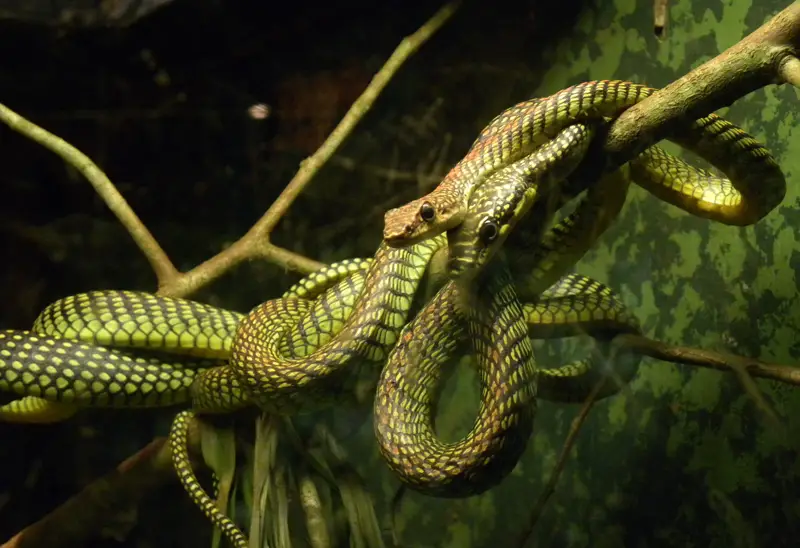
Owls have a diverse diet, and their preference for snake species may vary depending on their geographical location and available prey. Below is a table listing some of the most common snake types and the owls that frequently consume them:
| Snake Type | Owls That Eat Them |
|---|---|
| Garter Snake | Barn Owl, Long-eared Owl |
| Rattlesnakes | Great Horned Owl, Eagle Owl |
| Pythons | Eagle Owl |
| Water Snakes | Barn Owls, Great Horned Owl |
| Rat Snakes | Barred Owl, Eastern Screech Owl, Barn Owl |
| Smooth Green Snake | Pel’s Fishing Owl, Burrowing Owl |
| Copperheads | Great Horned Owl |
| Coral Snakes | Barn Owl, Great Horned Owl |
| King Snakes | Barn Owl, Great Horned Owl |
| Vipers | Eagle Owl |
| Tree Snakes | Barred Owl, Great Horned Owl |
What Is the Primary Food Source of Owls?
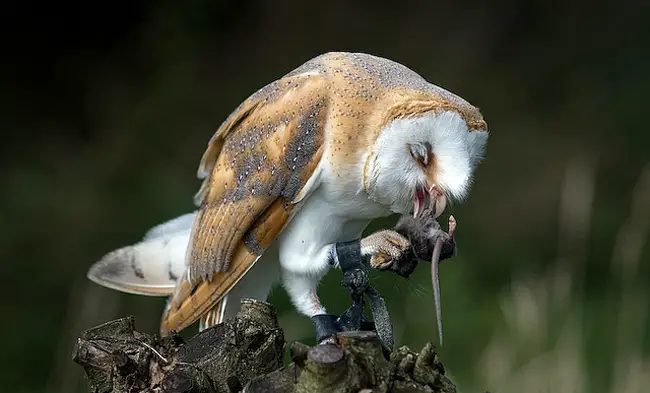
While owls might enjoy an occasional snake meal, their primary diet consists of various other prey, which can vary depending on the owl species. Below is a table showcasing different owl species and their main food sources:
| Owl Species | Primary Food |
|---|---|
| Great Horned Owl | Snakes, Scorpions, Other Reptiles |
| Snowy Owl | Voles, Lemmings, Fish |
| Striped Owl | Small Mammals, Insects, Reptiles, Birds |
| Barn Owl | Fish, Rodents, Birds, Small Mammals |
| Long-eared Owl | Rodents, Small Birds, Reptiles |
| Little Owl | Birds, Invertebrates, Mammals |
| Tawny Owl | Voles, Mice, Insects |
| Eagle Owl | Hares, Birds, Foxes |
| Golden Masked Owl | Rodents, Insects, Birds, Rabbits |
| Screech Owl | Slugs, Insects, Snails, Rodents |
| Barred Owl | Mice, Invertebrates, Reptiles, Fish, Birds, Amphibians, Rabbits |
| Short-eared Owl | Birds, Field Voles, Small Mammals |
Do Baby Owls Eat Snakes?
The feeding of baby owls is a collaborative effort between the adult owls. Usually, the parents are responsible for hunting and providing food for their young ones.
The adult owls bring back captured prey, which is then shared with the owlets. This process ensures that the young owls receive adequate nutrition and helps them develop hunting skills by observing and imitating their parents.
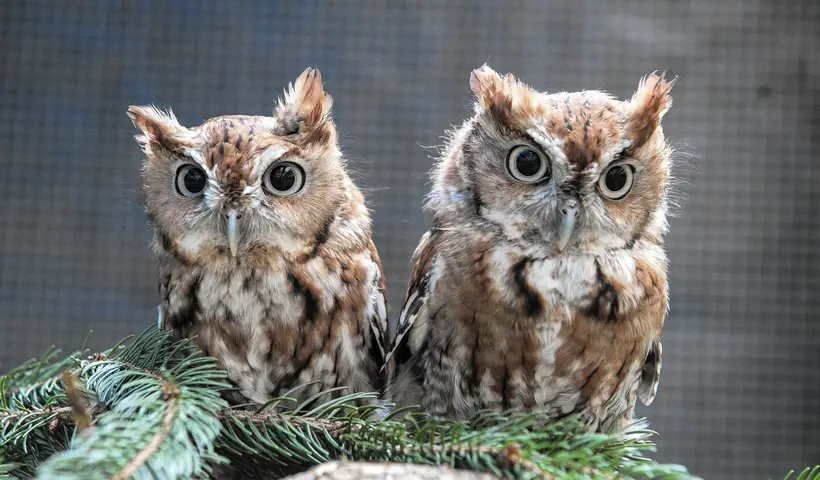
The diet of baby owls primarily consists of small, easily digestible prey that provides essential nutrients for their growth and development.
In cases where snake populations overlap with the habitat of baby owls, and a snake is small and within reach, owlets may attempt to prey on them.
However, due to their small size and limited hunting skills, baby owls are more likely to target smaller, more manageable prey that poses less risk during their early stages of life.
FAQs
Here are a few more related questions on owls that you might be interested in.
Owls have evolved behaviors and adaptations to cope with venomous snakes. Some owl species may use their talons to grasp the snake behind the head, avoiding contact with the venomous fangs. Additionally, owls’ strong digestive systems can often neutralize snake venom, making them less susceptible to its effects. However, they still exercise caution when handling potentially dangerous prey.
If an owl fails to kill a snake during its initial strike, the snake can escape and seek refuge. Owls are unlikely to pursue a snake that has managed to evade them, as they are opportunistic hunters and would rather conserve their energy for easier prey.
Apart from owls, there are several other bird species that occasionally prey on snakes. Some of these include hawks, crows, eagles, roadrunners, falcons, and secretary birds.
Conclusion
Owls, with their extraordinary hunting abilities, have earned their place as apex predators in various ecosystems. But do owls eat snakes? While snakes are not their primary diet, they do form a part of the owl’s diverse and adaptable menu.
Likewise, owls’ prowess in hunting and consuming snakes showcases the intricacies of nature’s food web. By understanding their diet and behavior, we gain valuable insights into these majestic creatures’ role in maintaining ecological balance.
